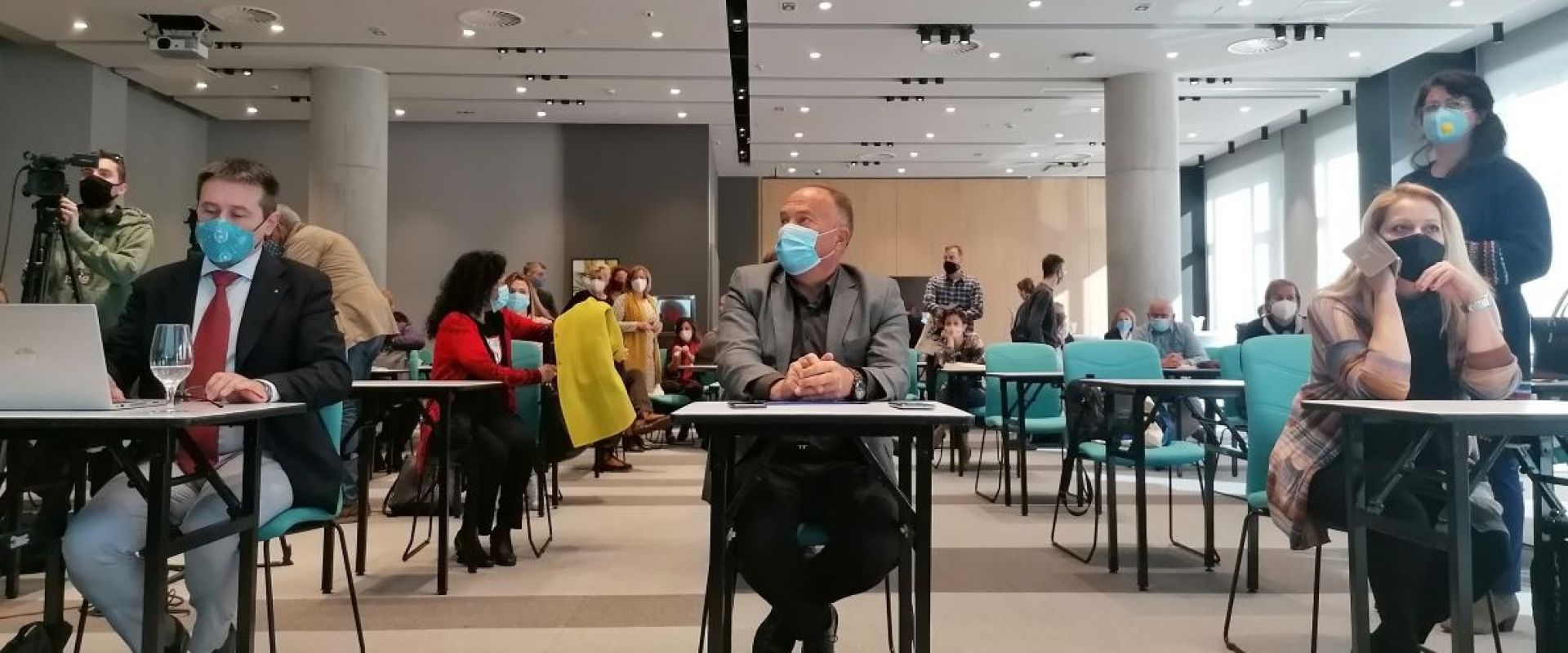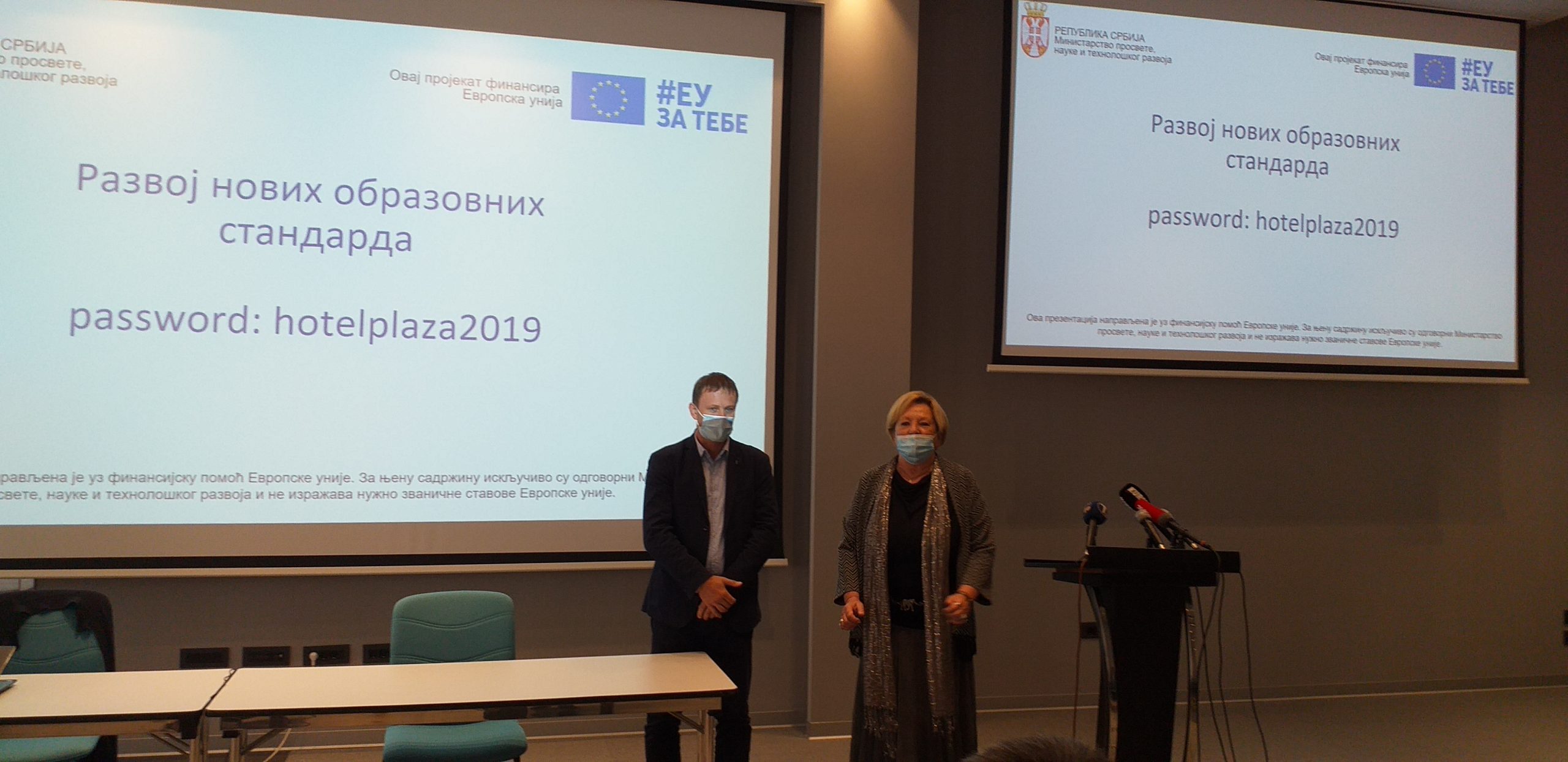The development of standards in education is the first step towards better educational outcomes. After that, it is necessary for students, with the help of teachers, to reach the level of knowledge that the new standards set. According to PISA testing, the means of education and competencies that students acquire are of great importance for a productive life in the 21st century.
Addressing primary and secondary school teachers and university professors who participated in the training “Development of new educational standards”, Minister of Education Mladen Šarčević pointed out that new educational standards are a condition for innovating curricula and should contribute to higher quality education, which is and the strategic commitment of the Ministry of Education.
“We are starting to deal with what Serbian education has been expecting for a long time. We want to make better results because the global impacts of student achievements are not what we want them to be. We owe immense gratitude to the European Union, which is a true partner and supports us in everything, “said Minister Šarčević.
The recent training “Development of new educational standards”, which is implemented in cooperation with two projects funded by the European Union – “State Matura Project” and “EU support for education reform in Serbia – Redis 2030” is the first in a series and marks the beginning of development and improving educational standards in primary and secondary education.

In cooperation with the expert teams of two projects – the State Matura Project and Redis 2030 (EU Support to Education Reform in Serbia), the Institute for the Evaluation of the Quality of Education and Upbringing has devised a new concept for the development of educational standards. In addition to the development of specific subject competencies, the focus will be on the development of the general subject and critical competencies and functional literacy in students.
The capacity of the individual to formulate, apply and interpret knowledge in different contexts, competencies, helps individuals to make well-founded judgments and decisions that are needed by constructive and interested citizens. “Competences are learned, and the school is responsible for them. Competencies imply higher-order thinking, which is multifunctional – responding to multiple and different requirements in different contexts and permeating through different social spheres – school, labour market, social networks, political processes, mutual relations, etc., “said Dragica Pavlović Babić, an expert on the State matura project.
The Minister pointed out that the development of new educational standards will be for the benefit of both students and teachers, and that teachers and professors make a significant contribution to raising standards, to enable students to learn more comfortable and faster and to focus on functional knowledge. He announced that the development of criteria would be followed by the innovation of teaching and learning programs, textbooks and final exams in primary and secondary schools.
Through examples of experiences from other countries, the workshop participants discussed competency-based education and its importance and identified different levels of competencies. Working groups for the revision of education standards, through this and the next workshops that the Ministry will organize on that topic, should contribute to significant changes in the system, which are expected to contribute to the quality of education in the long run, and thus to a better economy in Serbia.
EU support for education reform in Serbia – Redis 2030″ is one of the ongoing projects by which the European Union, as the largest donor in Serbia, supports the modernization of the education system and harmonization with the standards and practices of EU countries. Since 2003, the EU has donated more than 100 million euros for the reform of the education sector – for the improvement of preschool education, the reform of secondary vocational and adult education, the renovation and equipping of schools and colleges, support for inclusive education, etc.




